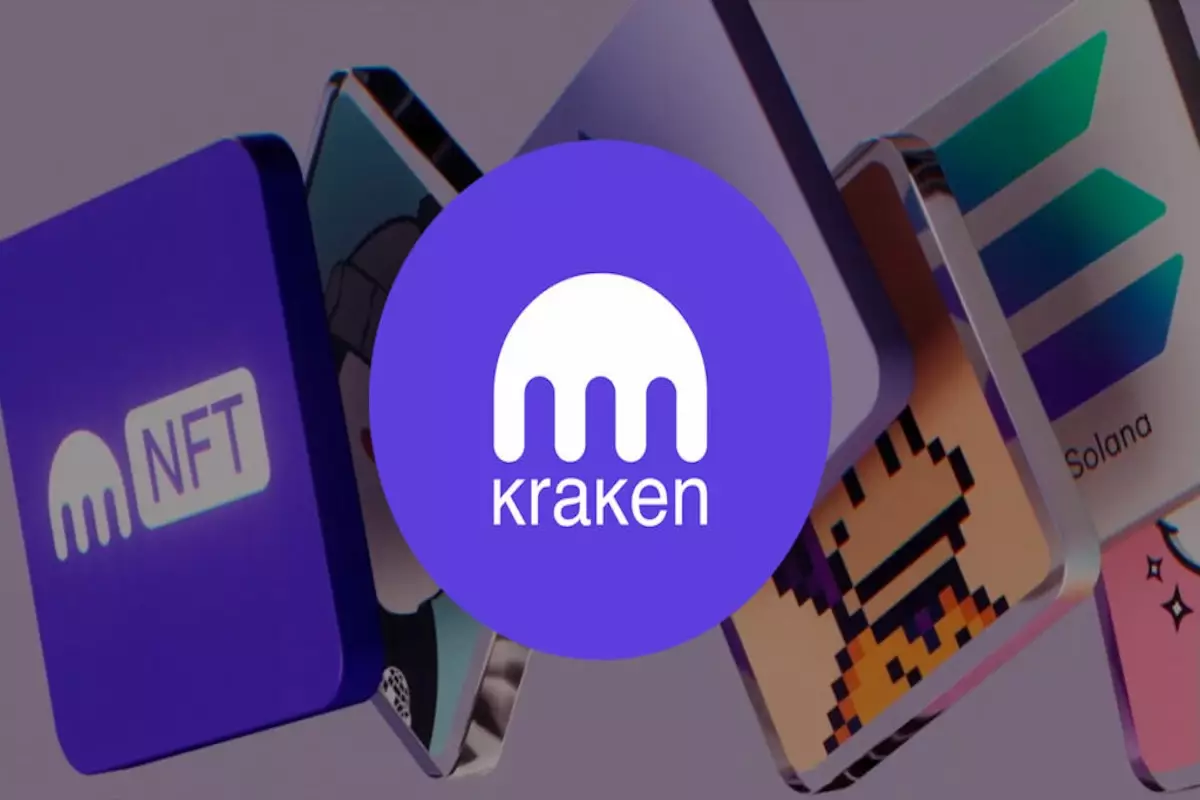In a surprising move that signals a significant shift in strategy, Kraken, one of the most prominent cryptocurrency exchanges in the industry, has decided to shutter its NFT marketplace. This decision was not made lightly; rather, it is a carefully calculated pivot aimed at reallocating resources toward more futuristic projects and developments that reflect the evolving landscape of the cryptocurrency market. The announcement, which came on November 27, cites a comprehensive reevaluation of priorities, indicating a broader intention to innovate and adapt to changing market demands.
Kraken’s NFT marketplace will officially cease operations in three months, allowing users some time to transition their assets elsewhere. The company’s message is clear: they are consolidating efforts to strengthen existing products rather than continuing down a path that may no longer align with their long-term vision. The emergence of new technologies, a growing interest in blockchain development, and the need for sustainable operations have spurred Kraken to explore these avenues.
While the closure of their NFT marketplace comes as a disappointment to some, it reflects a larger trend within the NFT space, which has seen a stagnant environment characterized by dwindling trading volumes. Weekly transactions have consistently fallen below $200 million since April 2024, underscoring a significant downturn. Despite the presence of popular projects such as CryptoPunks, the overall NFT marketplace is contending with challenges that continue to dampen growth.
Kraken’s exit from the NFT sector is emblematic of a more extensive evaluation of priorities across various crypto platforms. The closure may serve to reposition Kraken as a more competitive entity in other segments of the market, while also sending shockwaves through the NFT industry. It raises pertinent questions about how this will affect collectors and investors who have depended on the marketplace for buying, selling, and trading digital assets.
As traders and collectors consider transferring their assets, options like OpenSea and Rarible emerge as front-runners. These platforms not only preserve a robust NFT ecosystem but also cater to a variety of user needs, providing functionalities that Kraken’s marketplace lacked. The shift of users to alternative platforms can enhance trading activity in those areas and potentially spark new competition among existing players.
What does this mean for the future of the NFT market? Disruption often fosters innovation, and Kraken’s decision could push other platforms to enhance their offerings, focusing on critical areas such as security, user experience, and unique features that provide a competitive edge. The marketplace landscape is evolving, and as NFTs continue to attract attention from mainstream audiences, the call for platforms that prioritize user-centric design is growing clearer.
For new players in the NFT marketplace arena, there exists an opportunity to emerge with novel concepts and delivery methods that could resonate with the user base seeking fresh alternatives. Successful platforms will likely need to navigate various aspects of market demand, regulatory compliance, and technological advancements to establish themselves firmly.
As the NFT market grapples with these changes, collectors and creators are urged to adapt accordingly. Transitioning assets safely to either self-custodial wallets or trusted exchanges is paramount during this period of transition. Furthermore, exploring varied platforms with innovative features can offer enticing alternatives for creators looking to maintain control over their digital assets.
The closure of Kraken’s NFT marketplace underlines the necessity for all stakeholders in the blockchain community to remain agile and informed. The road ahead is undoubtedly filled with challenges; however, this juncture can also lead to breakthroughs as market players reconfigure their strategies to meet the needs and preferences of users.
Kraken’s decision to pivot away from its NFT marketplace reflects a broader trend within the cryptocurrency industry, emphasizing the necessity for adaptability and innovation. As the NFT landscape continues to evolve, stakeholders will be tasked with navigating a competitive environment marked by technological advancements and user expectations. By focusing on new projects—including the planned launch of its own blockchain in 2025—Kraken signals that the future will prioritize sustainable growth and long-term viability. Collectors, creators, and marketplaces alike must remain vigilant, embrace change, and strive for innovation in this ever-shifting landscape.
















Leave a Reply